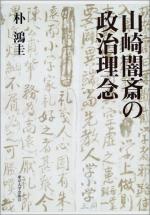|
This section contains 820 words (approx. 3 pages at 300 words per page) |

|
YAMAZAKI ANSAI (1618–1682), Japanese Confucian and Shintō scholar of the early Tokugawa period. The son of a samurai who lost his position in the turbulence of the early Tokugawa period, Ansai was set at a young age on a career as a Zen priest. However, in his twenties he became acquainted with the anti-Buddhist writings of the Song Chinese Neo-Confucian scholar Zhu Xi. Inspired by them, he rejected Buddhism in favor of Confucianism, left the monastery, and devoted himself to the study and explication of the ideas of Zhu Xi. He attracted many disciples, drawn primarily from the samurai class, and developed close relations with a number of important political figures. He thus played a significant part in the spread of Confucian learning among the Tokugawa samurai class. Ansai was also deeply interested in the fusion of Confucianism and Shintō that had been developed by contemporary Shint...
|
This section contains 820 words (approx. 3 pages at 300 words per page) |

|


